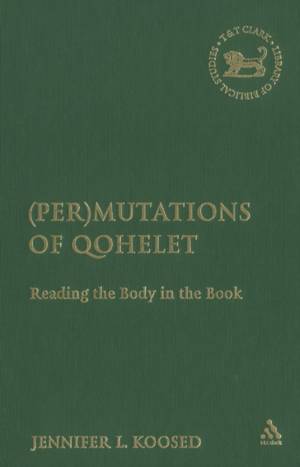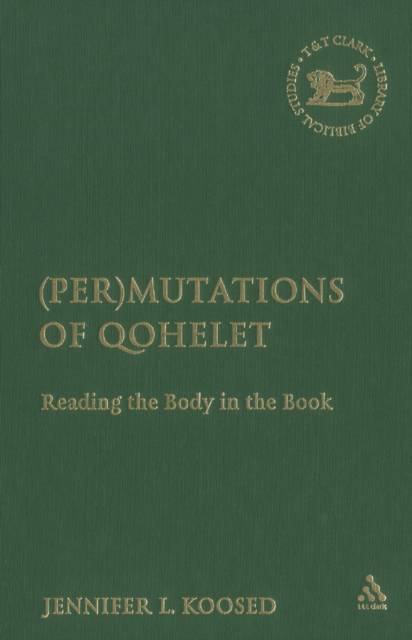
- Retrait gratuit dans votre magasin Club
- 7.000.000 titres dans notre catalogue
- Payer en toute sécurité
- Toujours un magasin près de chez vous
- Retrait gratuit dans votre magasin Club
- 7.000.0000 titres dans notre catalogue
- Payer en toute sécurité
- Toujours un magasin près de chez vous
Description
(Per)mutations of Qohelet explores the question, Who is Qohelet? Rather than peering behind or through the text to answer this question in terms of authorship, Koosed analyzes the identity that is created through the words on the page. The text is not a transparent medium connecting reader with author; instead, it is an opaque body - it has weight, substance, skin. Koosed begins with an analysis of the ways in which words construct identities and the reasons why words can affect us so profoundly, relying primarily on the work of Judith Butler and Elaine Scarry. She then explores autobiography and how the genre of autobiography - as reconfigured by Roland Barthes and Jacques Derrida - relates to Qohelet. These two chapters then set the framework for what follows: an analysis of the various bodily organs and sensations contained within the book of Qohelet. The body is embedded in the text through the naming of body parts (eye, hand, heart). And this same body is encoded in form, structure, and syntax, so that the text becomes a body with organs, systems, and even a life of its own. The book is a body and the book speaks of bodies. It speaks of the body's organs and senses; it concerns itself with the pleasures and pains of the body, the gendered body, the dying body. Finally, the ritual body is highlighted in the final passage of this enigmatic book.
Spécifications
Parties prenantes
- Auteur(s) :
- Editeur:
Contenu
- Nombre de pages :
- 152
- Langue:
- Anglais
- Collection :
- Tome:
- n° 429
Caractéristiques
- EAN:
- 9780567026323
- Date de parution :
- 01-07-06
- Format:
- Livre relié
- Format numérique:
- Genaaid
- Dimensions :
- 152 mm x 231 mm
- Poids :
- 385 g

Les avis
Nous publions uniquement les avis qui respectent les conditions requises. Consultez nos conditions pour les avis.






